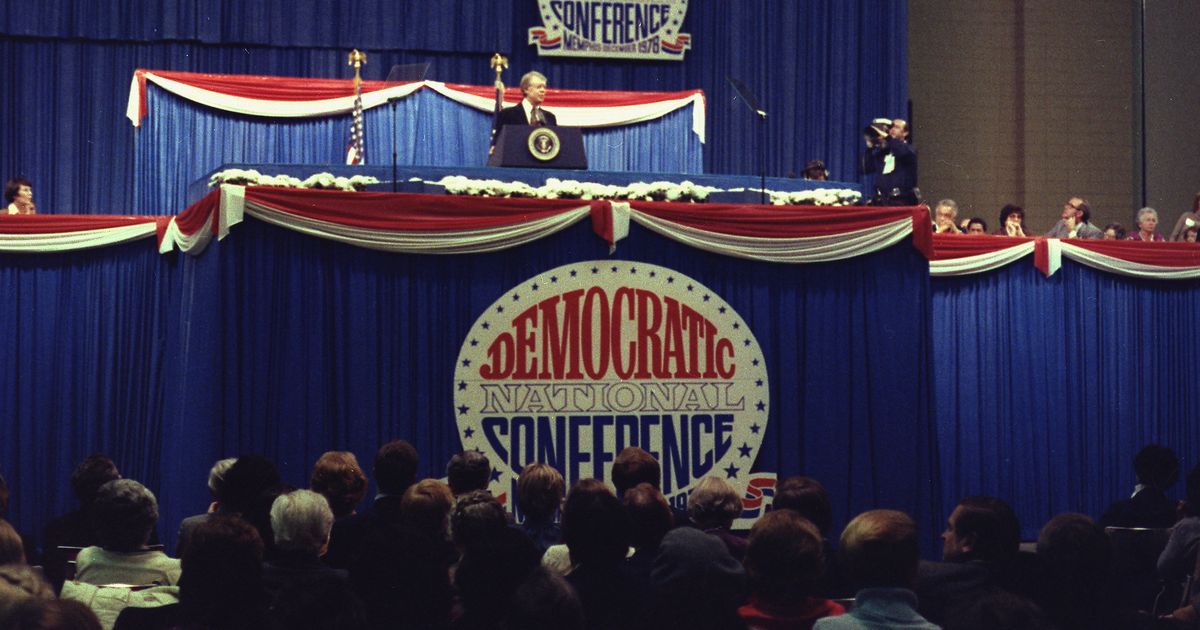
"President Trump could change his mind, of course, but it makes some sense from his point of view. He knows preserving Republicans' governing trifecta is going to be an uphill climb in 2026, given the historical pattern of the White House party almost always losing House seats in the midterms. His iron control of the GOP means it won't be hard to impose discipline on hand-picked delegates to an event like this, essentially making it a big paid ad for the party and its messages."
"The 1974 confab in Kansas City actually took place in December, after the midterm elections; it was basically held to adopt a party "charter" and overcome divisions that threatened to divide the party before the midterms. After more factional skirmishing, the delegates came together over a document consolidating party reforms, and the event was mainly known for introducing the so-called "Watergate class" of newly elected Democrats."
Both major parties have considered a pre-midterms national convention or "mini-convention," but practical barriers differ. Democrats would face slow, difficult coordination akin to turning a battleship. Republicans, driven by President Trump, can move quickly; a single Truth Social post can catalyze action. Trump sees strategic value in preserving Republican control and can enforce delegate discipline, turning the event into a paid party advertisement and potentially his last solo national spotlight during the Semiquincentennial. Historical Democratic mini-conventions occurred in 1974 and 1978; the 1974 Kansas City meeting consolidated reforms and introduced the "Watergate class."
Read at Intelligencer
Unable to calculate read time
Collection
[
|
...
]